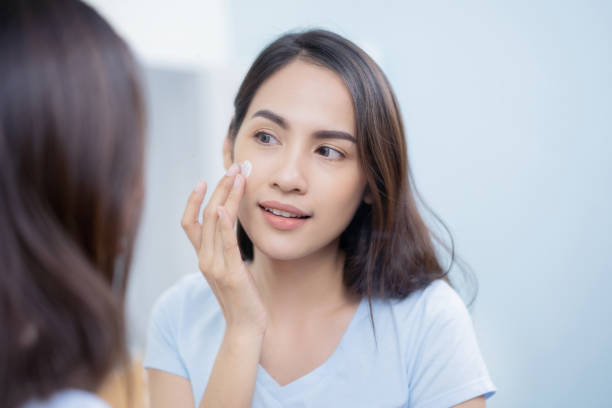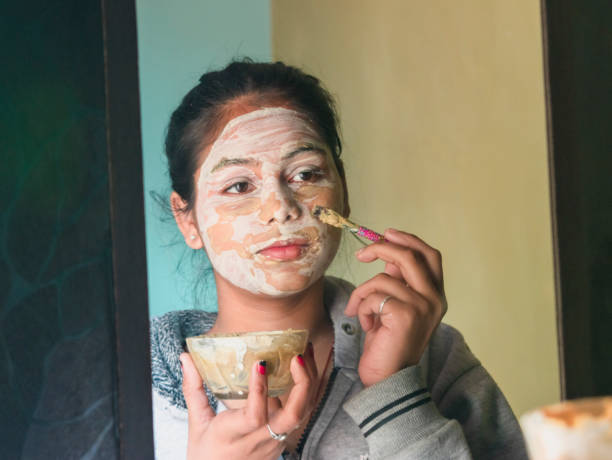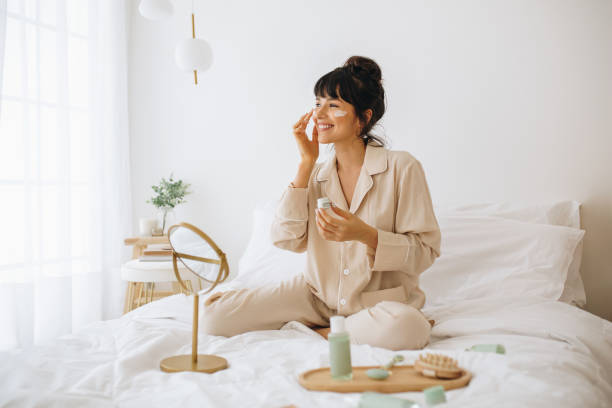A healthy complexion can transform your looks and your confidence. A great skincare regime can help but you need to do more to get truly glowing skin; it’s about your lifestyle too, so the New Year can be the perfect time to start.
There are some basics which everyone should be doing to give your new regime a great foundation. The condition of your skin reflects your health and lifestyle, so eating and sleeping well is crucial – think of how dull and tired your skin can get if you’ve had a splurge of nights out.
One of the most important skincare basics is to eat a well-balanced diet and it’s well known nowadays that six to eight glasses of water a day are needed to help keep skin hydrated. There are six crucial vitamins and food groups for healthy skin – Vitamins A, B, C and E, essential fatty acids and water-rich foods, so introduce a mix of dairy products, green leafy veg such as spinach and broccoli, wholemeal bread, citrus fruits, nuts such as almonds and hazelnuts and apples, cherry, lettuce and celery into your diet to help boost your radiance levels. Supplement this healthy diet with a good night’s sleep of between six and nine hours and you will start to see puffiness and bags disappear before (and from under) your very eyes.
Your skin is a very visual indicator of your emotional wellbeing, so there are other lifestyle factors that will affect your skin, most prominently, your stress levels. Take time to relax, have a massage – it’ll vastly improve the condition of your skin as well as making you feel calm and positive. Ditching bad habits can also vastly improve your skin, with smoking and drinking being the most obvious. Alcohol is dehydrating which is bad news for skin and can also cause spider veins, whilst smoking causes harm on a multitude of levels – it damages collagen and elastin, causing sagging skin while also constricting blood vessels and impairing blood flow to the skin. Squinting against the smoke, meanwhile, creates wrinkles.
Once you have made these lifestyle changes, it’s time to look at a skincare regime. It may seem obvious but it is vital you know your skin type, so you can adopt the regime that is right for your own particular skin. If you aren’t sure of this then visit a consultant in a beauty store and they should be able to help. Once you know your skin type then adopt the simple 3-step routine of cleansing, toning and moisturising, so that you are nourishing your skin from the outside as well as from the inside.
When you are looking for a moisturiser, the ‘scientific’ information can be mind-boggling, but there are some key ingredients to look out for; antioxidants help fight free radicals which can prematurely age skin; Hyaluronic acid attracts moisture and can hold up to one thousand times its weight in water and therefore is great for mature or dry skins. Vitamin A derivatives or retinoids have anti-wrinkle benefits and can also help acne. Peptides initiate collagen repair, helping to plump skin and smooth away fine lines and Glycolic, lactic and salicylic acids stimulate collagen production and help increase cell turnover, making skin look fresher.
However, it’s not just your face you need to think about; if you think about your body too then you won’t need a last minute dash when the summer holidays start rolling around. Get rid of dull, surface layer skin by gently exfoliating once or twice a week. Exercise is also a great way to glowing, healthy skin [ as it draws oxygen and nutrients to skin cells, firming and nourishing the skin. Physical activity also helps organs become more efficient at ridding your body of toxins, as well as reducing stress and helping you get a better night’s sleep – all of which will benefit your skin.
Your skin is your body’s largest organ and the one that gains the most exposure to the elements, and therefore, the last step to great skin is ensuring that you protect it properly. Check any moles monthly for change – look out for asymmetry, an irregular border, an uneven colour or a change in size. If you have any concerns, then visit your GP, they would rather a false alarm than leave it until it’s too late.
When outside, wear an SPF sun cream every day throughout the spring and summer, even if it doesn’t feel hot; less than one in three people uses adequate sun protection, and 70,000 new cases of skin cancer are diagnosed each year according to the British Skin Foundation. So look for cream with high UVA ratings and a minimum SPF of 15 – if you want a tan you can always cheat with the amount of self-tans on the market these days.
Getting great skin should be easy and manageable as long as you take small steps and introduce them into your everyday routine.




